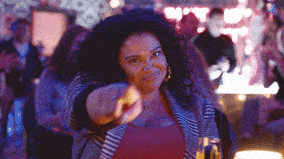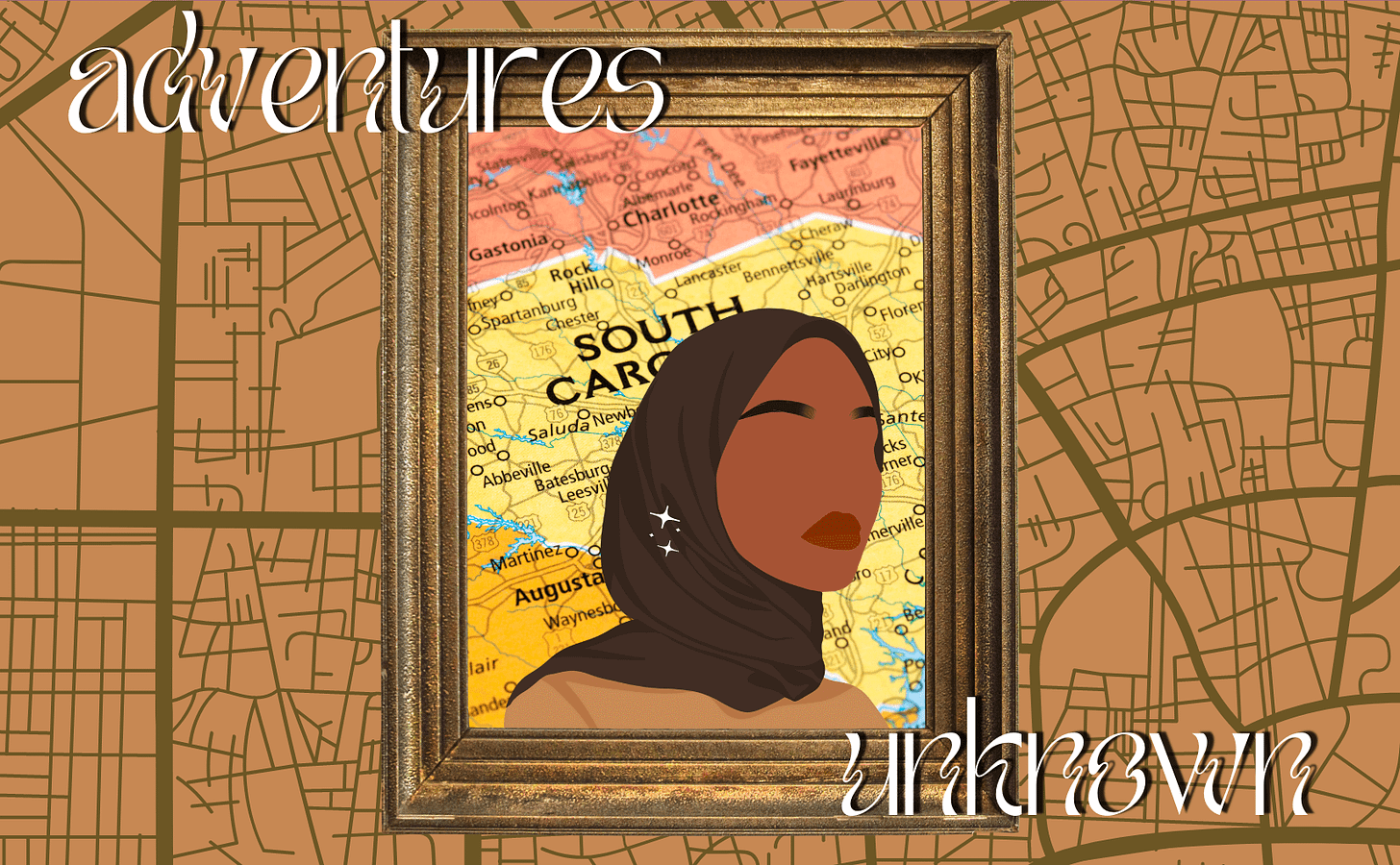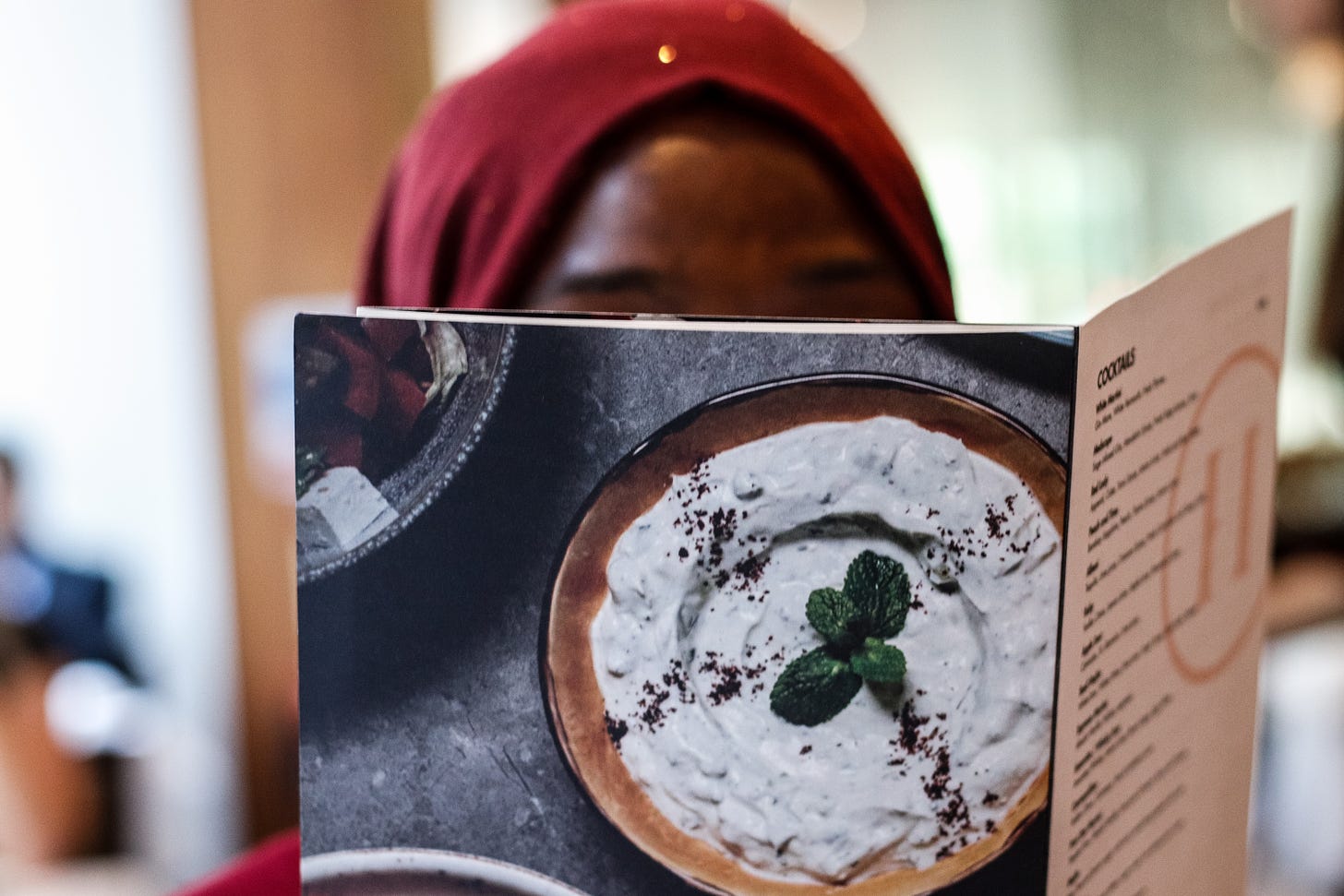Hey yall,
I was lying in a hammock with my friend a few days ago and we stumbled on the topic of purpose, more specifically, how purpose ties into your career.
I remember reading journalist and editor of Teen Vogue, Elaine Welteroth’s, memoir More Than Enough: Claiming Space For Who You Are, and one part stuck with me that I’ve pondered quite a bit since reading it years ago. She said, “The truth is, job titles are temporary. But purpose is infinite.”
While in the hammock, we discussed how everyone wants their job to be their “dream job” or for their job to be part of their purpose. And it can be. But after I quit my job in January, I realized that doesn’t have to be the case. You can have a job that you like, that you’re good at, and that pays the bills and that’s it. And that’s fine. It doesn’t have to be part of your purpose, it can just keep you financially above water.
Sometimes purpose isn’t tied to your job, it’s tied to who you are as a person, and your job is just that: your job. And even worse, for a lot of us who end up working in fields that are part of our passion or purpose, we can sometimes become burnt out and resentful of it due to how much we pour in. My friend on the other hand argued that their job does tie into who they are as a person and they couldn’t see how it’d be possible to detach from that. They said if your job wasn’t somehow fulfilling part of your purpose, you’d probably be unhappy in that job.
And to that, I say, maybe. To each their own.
If you happen to stumble onto a hammock, I encourage you to take a beat and lounge in it for a bit. Hammock talks are unmatched conversations.
This Week’s Story
As an avid traveler who would call herself pretty adventurous, the idea of traveling through the American South terrifies me. Dallas, Houston, and Atlanta are as far as I go down there, and I’m not sure when that’ll change. Writer Tahirah Blanding is way more adventurous than me, and here, she writes about navigating the South while being a hijab-wearing Black woman.
Enjoy,
Anayo Awuzie
EIC of Carefree Mag
Have Hijab, Will Travel: Overcoming the Fear of Traveling in the South
by Tahirah Blanding
I was an hour and a half into my drive from Raleigh, North Carolina, to visit a friend in Columbia, South Carolina, almost halfway there, and the fuel gauge was getting low. I had enough fuel to make it to the next gas station, but I began to panic—not because I was in fear of running out of gas, but because I was worried I wouldn’t be able to find a safe place to stop.
As a hijab-wearing woman of color traveling through the Bible Belt in the Deep South, I can’t easily go into any of the gas stations that line the route along I-95 South. Of course, the employees will serve me and allow me in their establishment, but their service might come with, what I call, the infamous Southern racist death stare. Usually, this stare is accompanied by questions asked in a very specific tone: “Yes? Do you need something?” or “Can I help you?” After living in the South for my entire life of nearly 30 years, I’ve learned to translate these questions as indirect commands for me to leave their space. You become more aware of the attack on your otherness, whether it’s an ideological attack on your religion or physical attacks on your body. And with the increase of assaults motivated by Islamophobia, traveling the South as a hijabi could compromise my safety—and I’ve had to learn to make it work for me.
Before I got out of my car, I adjusted my hijab to look less Muslim, because to appear less Muslim is to be safer.
Finally, I found a gas station in Dillon, S.C., that was well-lit and not riddled with Confederate flags or other symbols that might have signaled to me that I wasn’t welcome. Before I got out of my car, I adjusted my hijab to look less Muslim, because to appear less Muslim is to be safer. Typically, my hijab wraps around my head and drapes over my chest. This time, I tied it up around the top of my head, similar to how India.Arie famously wears her head wrap. “Perhaps they’ll think I’m just a black woman with a scarf,” I thought.
I know I can’t hide my blackness, but at least I can make myself safer by watering down my Muslim identity. Making these adjustments is normal for hijab-wearing women of color traveling through former Jim Crow states, where there’s a history of discrimination against and refusing service to Black travelers and just about anyone who doesn’t reflect the privileged majority of the town.
Growing up in Columbia, I was often first identified by my Muslim identity before my Black one. More than 40% of the population in Columbia is African-American, but it was my long cotton hijabs that made me stand out in the small city known for preserving its Southern Confederate heritage—the State House finally stopped flying the Confederate battle flag in 2015. At the time, there were two mosques in Columbia, and we were one of the few Muslim families in all of Richland County.
I was often first identified by my Muslim identity before my Black one.
By the time I was 10 years old, I had lost count of how often I had watched people’s faces turn upside down when they asked me, “What is that thing on your head?” and “Where are you really from?” For years, encounters like these and attitudes of disgust toward my identity kept me from traveling, even though I’ve always wanted to experience the beautiful landscapes of the South, especially in North Carolina. There are mountains, waterfalls, and caves I’d like to visit. There are the Great Smoky Mountains, a mountain range that stretches along the Tennessee and North Carolina border. The Linville Caverns contain one of the few publicly accessible caves in the entire state. And Looking Glass Falls is a waterfall that gets its name from the glistening of the nearby rocks when they freeze over in the winter. But for far too long, I was too scared to visit because these areas historically have not been safe spaces for nonwhite, non-Christian people—whether they were travelers or not.
Eventually, I realized that buckling to these fears and not traveling in my own home region because of this discomfort is a type of apology for who I am. And I want to be truly unapologetic—to be comfortable with who I am—despite the ongoing systemic attacks on my Muslim and Black identities. It means no longer adjusting my hijab to hide my religious preferences. It means no longer driving several miles past a gas station along my route to find another one that I deem safer. It doesn’t mean that I ignore the threat—but rather, I confront the threat with bravery and confidence, knowing that I have a right to travel and experience any landscape I choose.
And I want to be truly unapologetic—to be comfortable with who I am—despite the ongoing systemic attacks on my Muslim and Black identities.
As my confidence increases, I continue to travel throughout North Carolina and the South, even to cities that were strongholds for Donald Trump’s presidential win. On a scenic drive through Asheboro, North Carolina, I was amazed by the rolling foothills, but Trump’s landslide win in Randolph County was always in the back of my mind. I couldn’t help but think that 76.5 percent of the population voted for a man who posited that my religion and its adherents “hated” him. The lingering stares of the residents reminded me of this fact. The stares of disgust are still there, the rude questions persist, but they slowly lose their meaning and effect on me. I can’t say that I have no fear as a hijab-wearing traveler of the South, but I do know that I’ll no longer be intimidated.
Enjoyed this week's storyletter? Tap the heart & share it! 😍
Share on Twitter | Share on Facebook | Share via email | View past stories
Originally published on OnSheGoes









Good for not being apologetic for who you are.